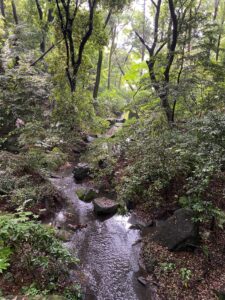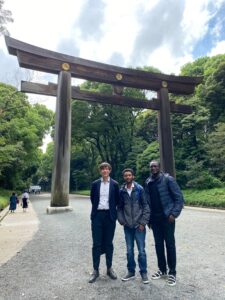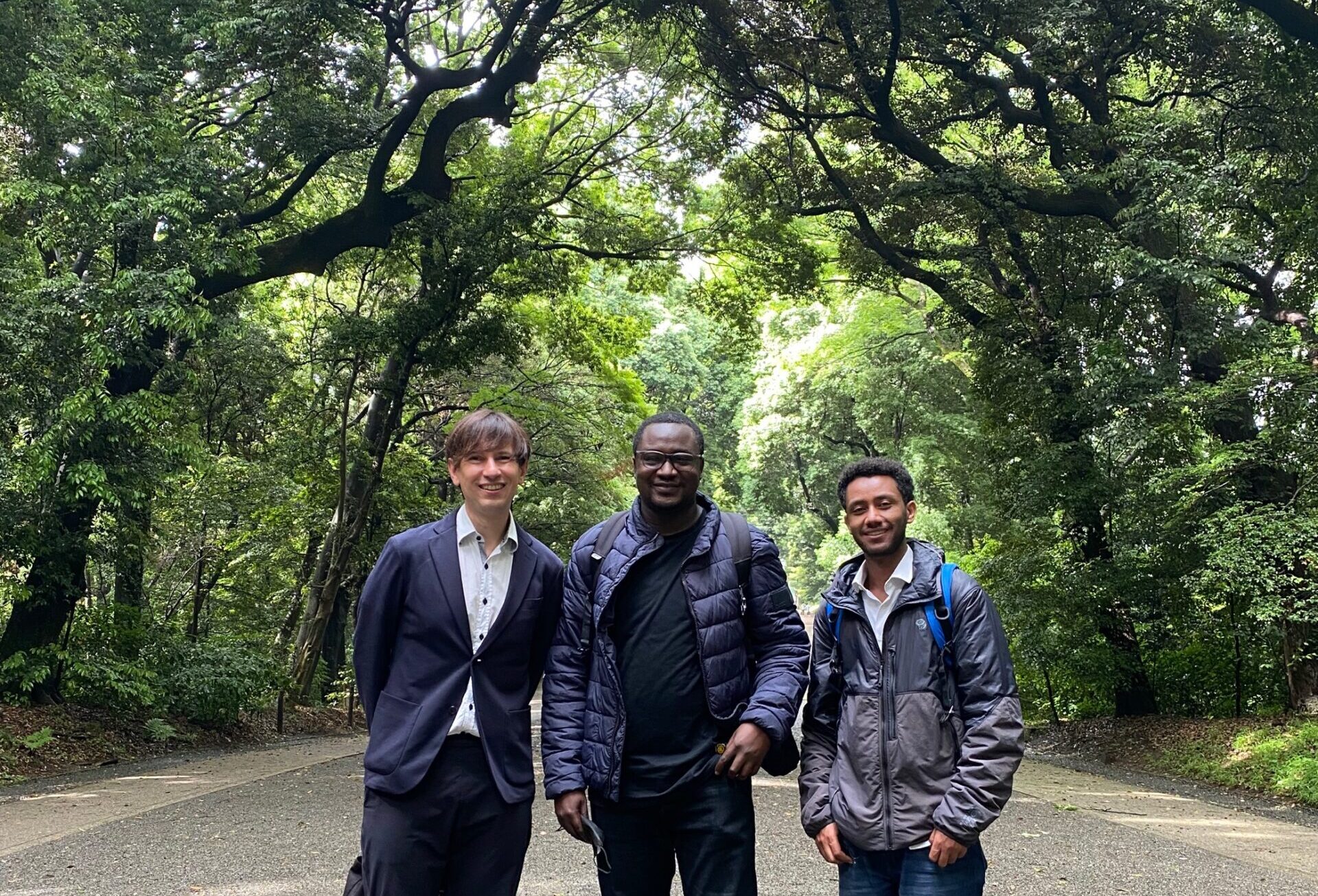Masters and Ph.D. students that enrolled United Nations University Institute for the Advanced Studies of Sustainability Programs in September 2021 have reached Japan during the last months since the COVID-19 situation has been improving.
A total number of thirteen students, eight Master’s students, and five Ph.D. students, from different countries of Africa, Asia, America, and Europe, will be studying at UNU-IAS for the following years assigned to UNU-IAS thematic areas Governance for Sustainable Development, Biodiversity & Society, Water & Resource Management, and Innovation & Education.
Among them, Ph.D. student Alebel Melaku Kolech from Ethiopia and Master student Bismarck Yayra Adzah from Ghana will actively enroll in OUIK research activities supervised by OUIK Research Associate Dr. Juan Pastor-Ivars.
Alebel Melaku Kolech is researching sacred forests’ contribution to ecosystems’ cultural and environmental services of sacred forests. His research area is in Kanazawa and will quantify the potential carbon sequestration and sustainability of selected preserved sacred forests in Kanazawa.
Bismarck Yayra Adzah is researching how to address the open defecation problem in the urban forests of Tamale City in Ghana. His research seeks to analyze the reasons for the open defecation, how it affects the ecosystem services provision, and how to restore them sustainably.


In June, Dr. Juan Pastor-Ivars met them at UNU-IAS headquarters in Tokyo and discussed the implementation of their research. After that, they visited Meiji Jingu Shrine to have a first onsite contact with a sacred urban forest in Japan
We as OUIK, are delighted to support our students. We expect an important contribution from them to the OUIK Kanazawa SUN project, expanding the discussion of urban nature’s contribution to mitigating climate change, nature fragmentation, biodiversity loss, etc.





